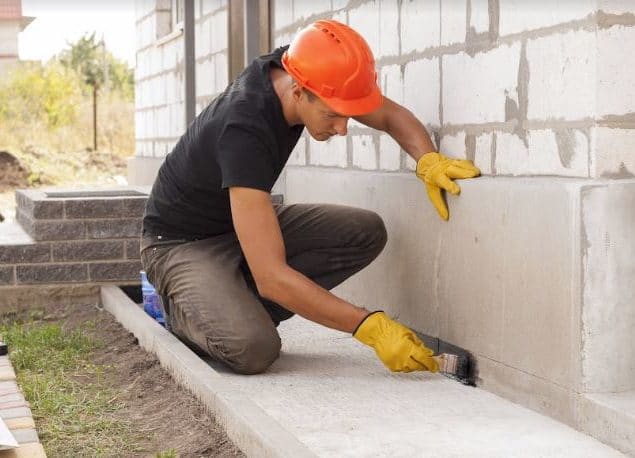For most homeowners, the idea of dealing with water in the basement is never a welcoming one. There’s a level of comfort that comes with having a waterproof basement. Homeowners keep most of their belongings in the basement; hence, it should stay dry throughout to avoid water damage.
Water can seep into the basement through foundation cracks, open windows, and poor plumbing services. All these can cause water damage and mold growth due to moisture condensation. Thus, basement waterproofing is critical.
When your basement is flooding and you need a speedy solution, you can call on a specialist to deliver quality basement waterproofing services.
Here are practical basement waterproofing tips you should know:
1, Invest In Good Gutters
You should perform seasonal gutter cleaning in order to allow the gutter system to function properly!
As you waterproof your basement, don’t miss the roof drainage. Take note that it only takes a broken downspout or clogged gutter for rainwater to enter your basement.
For gutters to be effective, they should have a downspout for every 600 to 800 square feet of roof surface, then be extended and discharged about four to six feet from the foundation.
Also, angling and cleaning your gutter will collect and redirect water away from the house’s foundation. However, the quality of your roof gutters can bring the difference between a wet and dry basement.
2, Repair Damaged Plumbing
The home’s plumbing should be considered because even the smallest of broken pipes and water leaks in the basement could lead to floods. Major leaks are one of the plumbing issues that warrant the services of a professional.
Repairing damaged plumbing will help prevent moisture and water buildup, which will cause damage.
3, Apply Foundation Coatings
The coating can be brushed or rolled onto poured concrete, inside the blocks, or any masonry foundation wall. Foundation coatings can come in so many colors, making it easy for you to choose one that best matches your space.
Applying waterproof coatings should be cost-effective and easy to use, depending on the scale of the space. They dry quickly in about three hours to allow for extra coats.
4, Check The Foundation For Cracks
Cracks in your foundation can lead to a flooded basement. Water can leak through the cracks under minor storm conditions, which might eventually cause flooding. The gaps also expand under heavy rains, hence, leading to severe flooding.
Basement walls need to maintain their foundation. Otherwise, even the most minor crack can create mold and mildew, and make the room unsafe for use.
For your basement to be 100% waterproof, you should repair cracks in the concrete walls during dry seasons.
5, Grade Soil-Away
As long as rainwater has it’s way to your home’s foundation, your basement will always be in danger of floods. The soil angles around your foundation perimeter should be appropriately graded to direct water away from the foundation.
Ensure the slope extends at least 10 feet away from the foundation to prevent water from flowing back to the house.
6, Add Window Well Covers
Windows are plentiful in the basement because of the natural light they bring inside, but they’re also a flooding hazard when there’s rainfall. They collect water from the yard, and it can easily find its way to the basement.
To prevent this, get window well covers installed. They’re great for below-grade basements. Not only do these allow natural light, but they also prevent rain, debris, and insects from entering the basement.
7, Install A Sump Pump
Sump pumps are significant flooding barriers as they help remove water in the basement. These basement sumps are permanently installed with a detective that pumps water at a certain level. When the valve senses wetness, the pump turns on automatically and discharges water through a discharge line.
To ensure your basement is waterproof, the specialist should install the sump pump correctly and provide the one installed that can help prevent a flooded basement. The sump pump is free from any foreign material and easy to clean.
8, Use Dehumidifiers
Even if you don’t have water leakage in your basement, high condensation and humidity are prime factors, resulting in a damp basement. If your basement humidity is above 50%, you can use dehumidifiers to remove excess moisture.
Dehumidifiers help the basement remain dry to prevent mildew and mold growth. It also cleans and filters the air in the space and reduces odors.
Conclusion
Basement flooding is a significant concern for homeowners, especially in heavy rainfall regions. Fortunately, there are a few measures you can implement to protect your home from water damage.
All of the provided tips above should be kept in place in the drier seasons, so you and your home are well-prepared for wetter months.













